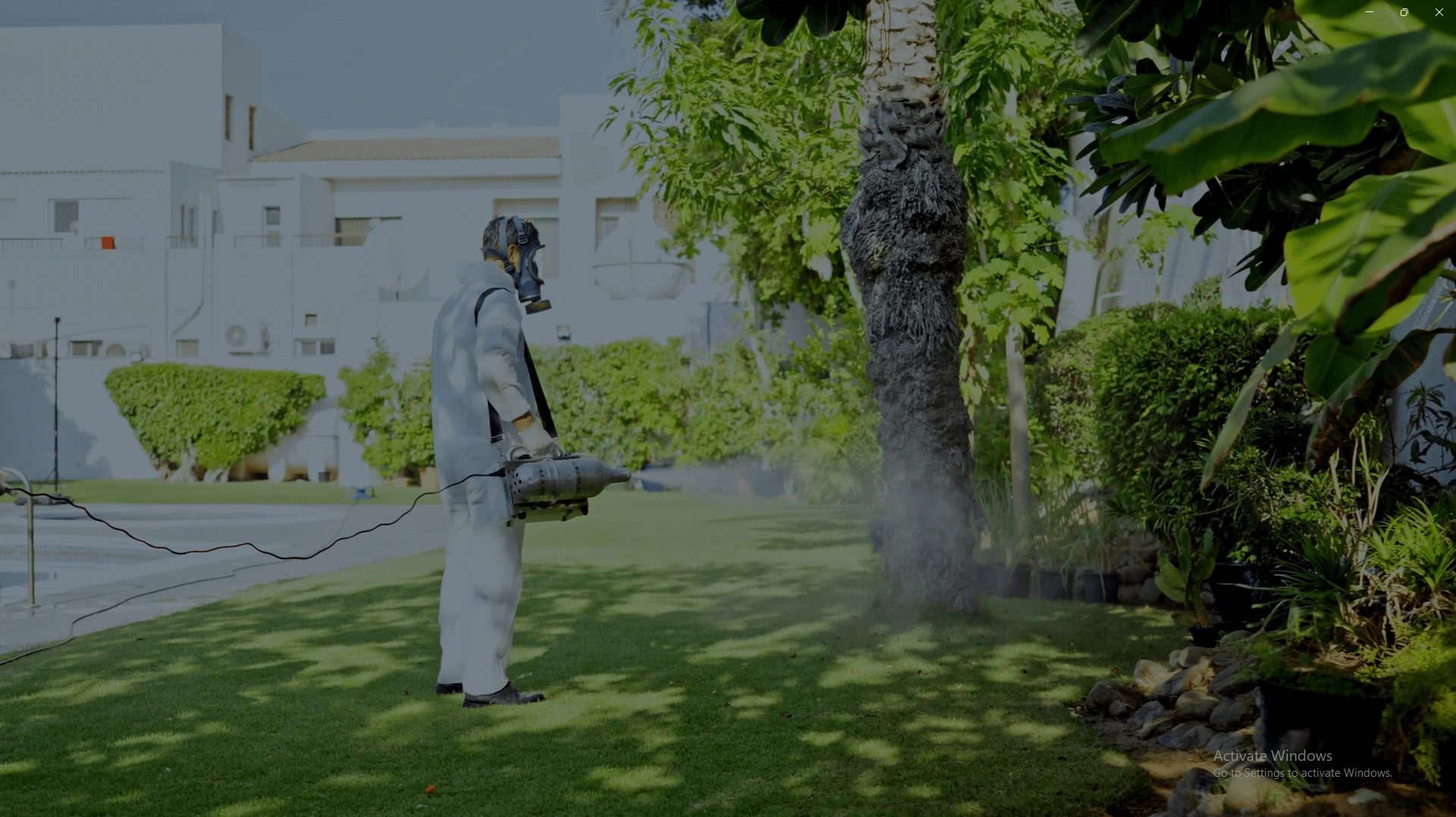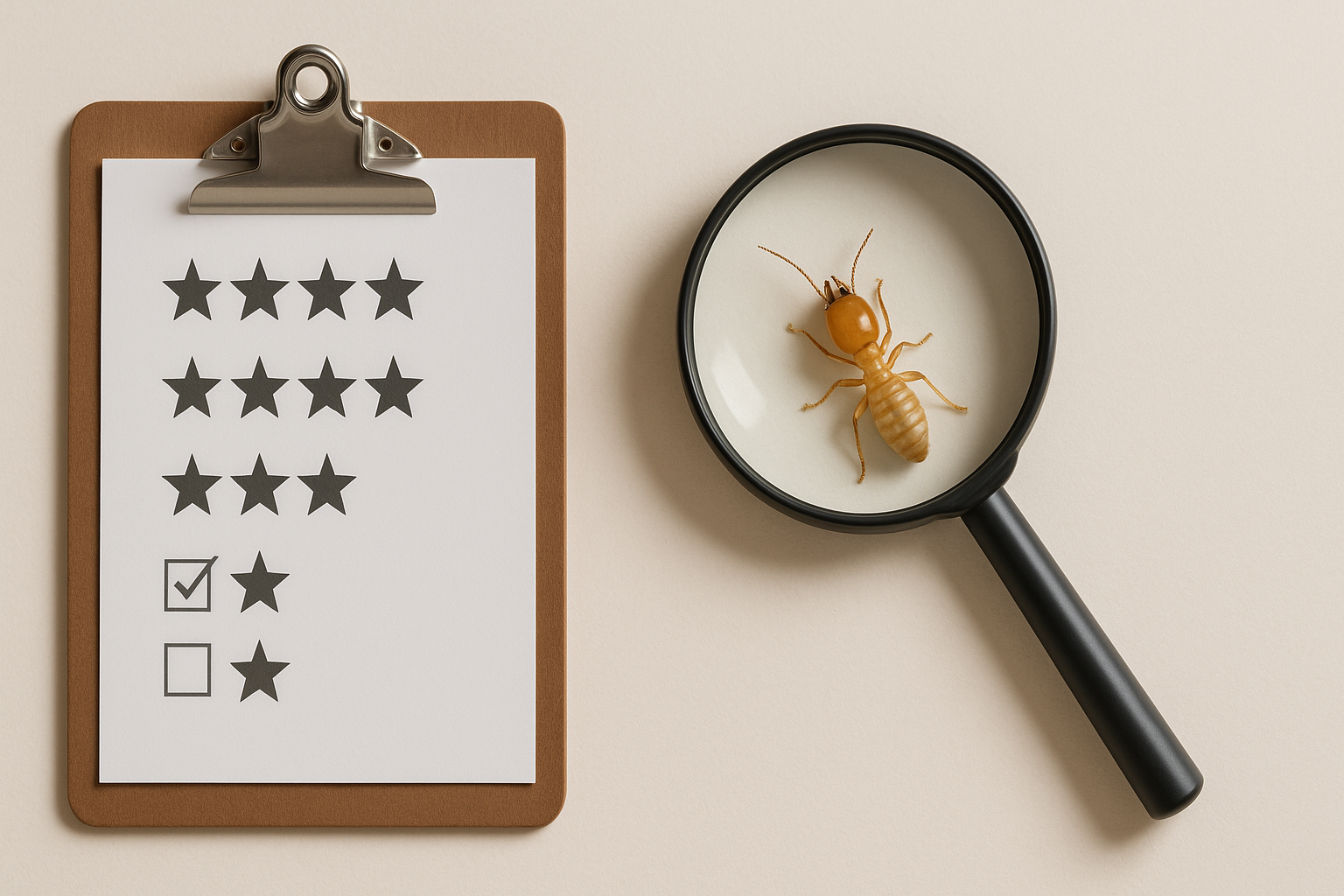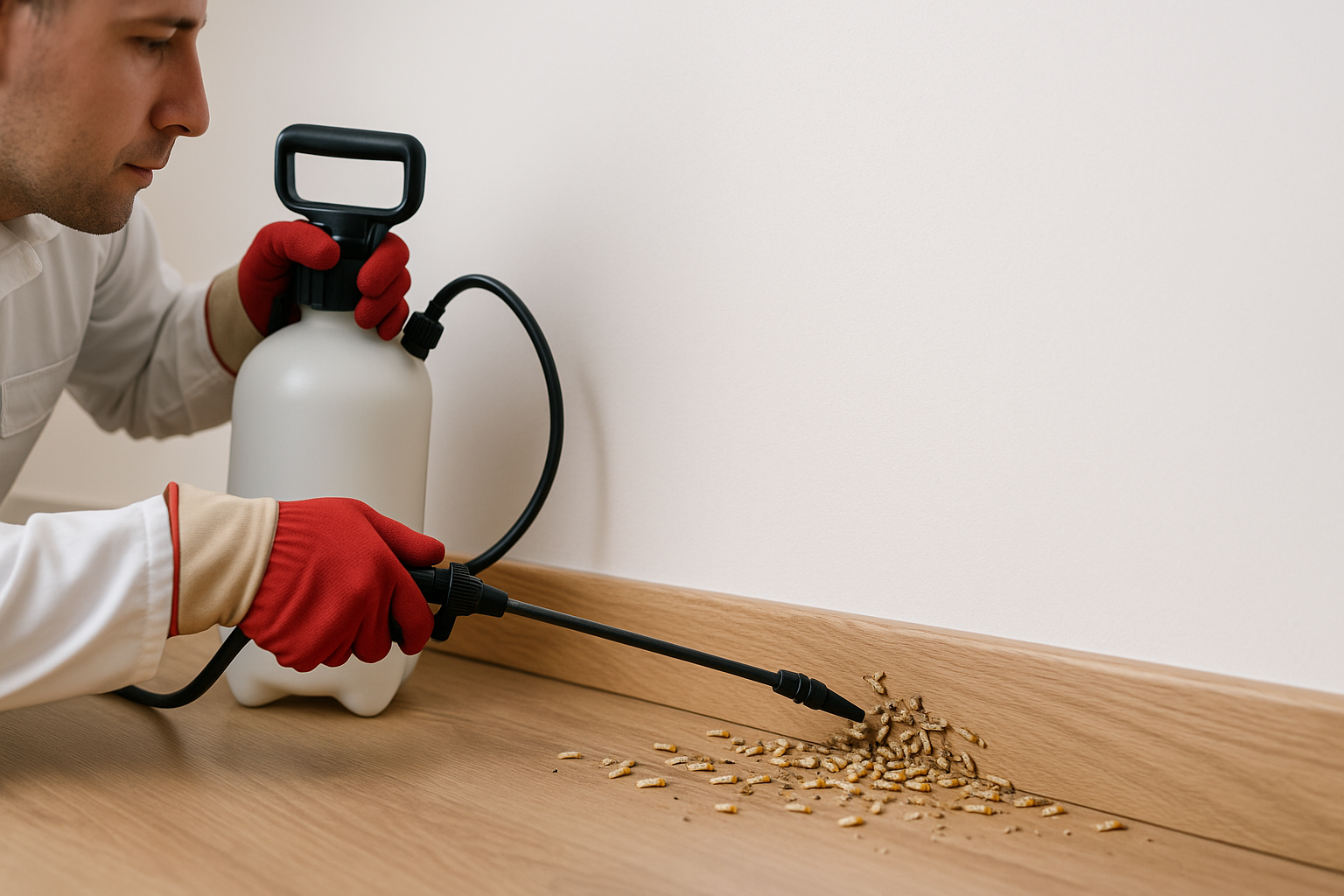Table of Contents
What is Annual Termite Inspection?
An Annual Termite Inspection is a professional service conducted once a year to detect any presence of termites or potential termite damage in residential or commercial properties. This routine check helps property owners identify infestations early, often before visible damage manifests. Because termites can silently compromise the structural integrity of buildings, scheduling regular inspections is a preventive strategy that safeguards investments and ensures safety.
During the inspection, certified pest control professionals thoroughly examine the property’s foundation, wooden structures, walls, and other vulnerable areas where termites commonly thrive. The goal is to assess the risk, detect infestations, and recommend tailored treatment or monitoring solutions if necessary.
Why Annual Termite Inspection Is Critical
Termites are among the most destructive pests globally, causing billions of dollars in property damage every year. Despite this, termite infestations often go unnoticed until signs are severe. An Annual Termite Inspection is critical for several reasons:
- Early Detection: Experts spot termite activity early, preventing extensive damage.
- Cost Savings: Addressing infestations early saves costly repairs compared to replacing damaged wood.
- Protection of Property Value: Regular inspections help maintain or increase property resale value by certifying it’s termite-free.
- Peace of Mind: Knowing your property is monitored annually reduces concerns about hidden infestations.
- Compliance and Insurance: Some insurance policies and local regulations require routine termite checks, making annual inspections a practical necessity.
Especially in regions prone to termite activity, an Annual Termite Inspection proves indispensable for homeowners, landlords, and property managers alike.
What Does an Annual Termite Inspection Cover?
An Annual Termite Inspection is comprehensive, examining both the interior and exterior of a property. Below is a detailed breakdown of what is typically covered:
Exterior Inspection
- Checking for mud tubes or tunnels on foundation walls and exterior wood surfaces.
- Inspecting wooden fences, decks, and gutters for signs of termite activity.
- Examining soil near the foundation for nesting or tunneling evidence.
- Surveying areas with excessive moisture, as termites thrive in damp conditions.
Interior Inspection
- Inspecting wooden floors, baseboards, door and window frames for damage or hollow sounds.
- Checking walls, including behind wallpaper or paneling, for blistering or discoloration.
- Examining crawl spaces and attics for termite droppings or damaged wood.
Documentation and Reporting
After inspection, professionals provide a comprehensive report outlining findings, severity of infestation if any, and recommendations for treatment or ongoing prevention.
Some services also offer a certificate of inspection, which can support real estate transactions or insurance documentation.
Re-inspection and Monitoring Devices
Following the initial Annual Termite Inspection, treatment might be necessary if termites are detected. However, ongoing vigilance through re-inspections and monitoring devices helps maintain a termite-free environment effectively.
Re-inspection Services
Re-inspection typically occurs several months after treatment or as recommended by pest control professionals. It validates treatment success and confirms no further termite activity exists. For high-risk properties or locations, some owners choose biannual or quarterly inspections.
Monitoring Devices
Modern termite control increasingly uses monitoring devices strategically placed around the property. These devices serve multiple purposes:
- Early Warning: Detect termite presence before visible damage.
- Non-invasive: Require no drilling or structural alteration to install.
- Data-Driven Prevention: Professionals regularly check devices and interpret data to adapt treatment strategies.
Common monitoring tools include bait stations and electronic sensor systems. These devices effectively complement the annual inspections by ensuring continuous surveillance.
Frequently Asked Questions About Annual Termite Inspection
How long does an Annual Termite Inspection usually take?
The duration depends on the property size and complexity but generally lasts between 30 minutes to 2 hours. Larger or older properties might require more detailed inspection time.
Is an Annual Termite Inspection expensive?
Costs vary by region and property size but are typically a minor investment compared to potential termite damage repair. Investing annually can save substantial money over time.
Can I perform an Annual Termite Inspection myself?
While some basic checks can be done by property owners, certified professionals possess expertise, tools, and experience to detect hidden infestations accurately.
What happens if termites are found during the inspection?
The pest control service will recommend treatment options, which may range from chemical barriers to baiting systems or fumigation, depending on infestation severity.
Are monitoring devices mandatory after treatment?
They are not mandatory everywhere but are highly recommended for continuous termite control, especially in high-risk areas.
How is Annual Termite Inspection linked with property regulations?
Many municipalities require periodic termite inspections for safety and public health. For more details on regulations and official pest control measures, consult resources like the Public Health & Pest Control Section provided by government authorities.
Conclusion and CTA
Scheduling an Annual Termite Inspection is a proactive step every property owner should prioritize. This yearly service provides essential protection against costly termite damage while maintaining property value and safety. Leveraging modern monitoring devices and re-inspection protocols further enhances termite management effectiveness.
Don’t wait until signs of termite damage become visible. Partner with trusted experts who follow proven practices and utilize advanced technology. For comprehensive Annual Termite Inspection and pest control solutions tailored to your property’s needs, explore Saniex General Pest Control services and secure your investment today.
Why an Annual Termite Inspection Is Essential for Your Property
Regular maintenance and vigilance play a crucial role in protecting your home or business from the costly damage termites can cause. An Annual Termite Inspection is not just a recommended practice—it is a vital step in early detection and prevention of infestations that can compromise the structural integrity of your property. Termites often go unnoticed until the damage is severe, so scheduling a professional inspection once a year helps ensure any termite activity is caught promptly, significantly reducing repair costs and preserving property value.
Understanding the Risks of Termite Infestation
Termites are silent destroyers, often living and feeding inside the walls, floors, and wooden structures of buildings without visible signs on the surface. Depending on the termite species, some colonies can remain hidden for years while causing extensive internal damage. The most common types of termites found in residential and commercial properties include subterranean termites, drywood termites, and dampwood termites, each with different behaviors but equally destructive potential.
Without an Annual Termite Inspection, property owners risk missing early warning signs such as:
- Mud tubes on foundation walls or wooden beams
- Hollow sounding wood when tapped
- Discarded wings near windows or doors
- Tiny pinholes in wooden structures
Ignoring these signs or failing to identify them early increases the likelihood of structural damage, which may manifest as sagging floors, cracked ceilings, and weakened support beams.
What Happens During an Annual Termite Inspection?
A comprehensive Annual Termite Inspection involves a detailed evaluation conducted by trained pest control professionals who specialize in termite detection. The process typically includes:
- Visual Inspection: The inspector examines all accessible areas of the property, including the foundation, crawl spaces, attics, and any wooden structures, looking for visible signs of termite damage and activity. They check for moisture issues that attract termites, such as leaks or poorly ventilated areas.
- Use of Specialized Tools: In some cases, inspectors use moisture meters, infrared cameras, or acoustic emissions detectors to identify hidden termite infestations behind walls or under floors without causing damage to the property.
- Identification of Risk Factors: The inspector assesses environmental factors contributing to termite risks, including soil conditions, wood-to-ground contact, mulch placement, and drainage issues. These factors can influence termite behavior and infestation likelihood.
- Report and Recommendations: After the inspection, the property owner receives a detailed report outlining findings, including evidence of termite presence or conducive conditions. Recommendations for treatment, repairs, or preventative measures often accompany the report.
By undergoing an Annual Termite Inspection, property owners gain peace of mind knowing any termite activity will be identified before significant damage occurs.
Benefits of Scheduling an Annual Termite Inspection
There are several advantages to making an Annual Termite Inspection part of your property maintenance routine:
- Early Detection Saves Money: The sooner termites are detected, the easier and less expensive it is to eliminate them. Minor infestations can often be treated with localized methods rather than extensive building repairs or fumigation.
- Protect Your Investment: For homeowners especially, a property represents one of the largest financial investments made. Ensuring that termites have not compromised the structure preserves property value and avoids costly surprises during resale or refinancing.
- Insurance and Lending Requirements: Many mortgage lenders and insurance companies require a termite inspection before approving loans or claims. An Annual Termite Inspection verifies the condition of the property, helping meet these official requirements and facilitating smoother transactions.
- Customized Recommendations: Pest professionals can advise on ongoing termite prevention strategies tailored to your property. This might include soil treatments, installing termite bait stations, or correcting moisture problems.
- Peace of Mind: Knowing that your property is inspected yearly provides confidence that termite damage will not catch you off guard.
Preventative Measures to Complement Annual Termite Inspections
While an Annual Termite Inspection is fundamental in managing termite risks, combining it with proactive prevention greatly reduces the likelihood of infestation. Key preventative strategies include:
- Eliminate Wood-to-Soil Contact: Avoid direct contact between wooden parts of your home or fence and the soil. Use concrete bases for wooden structures whenever possible.
- Control Moisture Levels: Fix leaks promptly and ensure proper drainage around the foundation to minimize moisture buildup that attracts termites.
- Remove Wood Debris: Clear away fallen branches, tree stumps, and other wood debris near the building that can serve as termite food sources.
- Limit Mulch Placement: Keep mulch away from the foundation as it retains moisture and can harbor termites.
- Maintain Proper Ventilation: Ensure crawl spaces and attics are well-ventilated to reduce humidity levels.
These simple measures, alongside an Annual Termite Inspection, create a comprehensive approach to termite management.
When Should You Schedule an Annual Termite Inspection?
Most experts recommend scheduling your Annual Termite Inspection during the warmer months when termite activity is at its peak. In many regions, termites become more active in the spring and summer due to favorable conditions for swarming and colony expansion. Early spring inspections can catch signs of recent termite activity before summer swarms increase the risk of spread.
In certain cases, more frequent inspections may be necessary, such as:
- After significant repairs involving wood replacement
- Following flooding or water damage events
- If previous termite infestations were recently treated
- In high-risk geographic areas with prevalent termite populations
By consulting with a licensed pest control professional, property owners can tailor the inspection schedule for their specific risk factors.
Choosing a Qualified Professional for Your Annual Termite Inspection
The effectiveness of your Annual Termite Inspection largely depends on the skill and experience of the inspector. Selecting a qualified pest control company or termite specialist involves considering several factors:
- Licensing and Certification: Ensure the inspector is certified by relevant industry organizations and complies with local regulations.
- Experience: Look for companies with an established track record in termite detection and treatment in your region.
- Detailed Reporting: The inspection should include a thorough written report explaining findings and recommendations in clear terms.
- Integrated Services: Some providers offer follow-up treatments and ongoing monitoring, providing convenience and continuity.
- Customer Reviews and References: Feedback from previous clients can shed light on the quality and professionalism of the service.
Investing in a reputable professional ensures your Annual Termite Inspection delivers maximum value and protection.
Conclusion: A Smart Investment in Property Protection
An Annual Termite Inspection represents one of the smartest investments a property owner can make to safeguard their home or building against termite damage. Given the stealthy nature of termites and the potentially severe consequences of untreated infestations, routine inspections are essential to detect and prevent costly structural repairs.
By understanding the inspection process, why it is necessary, and how it fits into a comprehensive termite management plan, property owners can take proactive steps to maintain the health and value of their real estate. Combining expert inspections with sound preventative measures creates a robust defense against one of the most destructive pests known to building construction.
Scheduling your Annual Termite Inspection today is the first step toward lasting termite protection and peace of mind for years to come. For more detailed guidelines on Annual Termite Inspection best practices, visit the internal Annual Termite Inspection resource page.





